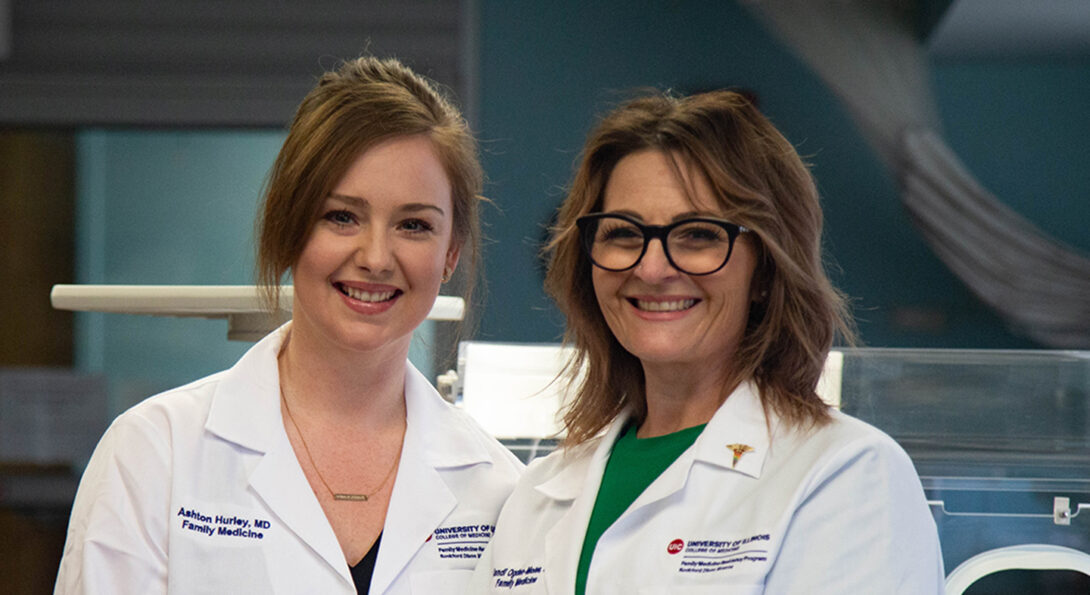Journal highlights the STRETCH-OB Program

A special supplement of the American Journal of Public Health - Improving Maternal Health Outcomes features a University of Illinois College of Medicine Rockford program that provides obstetrical training to family medicine residents. The publication was created in collaboration with the Health Resources and Services Administration (HRSA) and features programs funded by the Primary Care Training Enhancement – Community Prevention and Maternal Health program. This supplement is designed to educate primary care and preventive medicine physicians about critical aspects of maternal care and highlights innovative approaches.
In an article entitled Lessons Learned in Building a Primary Care Training Program in Advanced Surgical Obstetrics: Implementation of STRETCH-OB, primary author Manorama Khare, PhD, MS, outlines how the Structured Training for Rural Enhancement of Community Health in Obstetrics (STRETCH-OB) program prepared family medicine residents to provide evidence-based maternity care with an emphasis on higher-risk and surgical obstetrics in rural and underserved communities.
Dr. Khare is a research associate professor and director of the Division of Health Research and Evaluation (HRE) in the Department of Family and Community Medicine. Co-authors from her department include Kristine Zimmermann, PhD, MPH, a research assistant professor; Vicki Weidenbacher-Hoper, MSW, associate director of community engagement and development; Tsai Ling Liao, MD, an assistant professor of clinical family medicine and associate program director for the Family Medicine Residency Program; David Pluta, MPH, a research associate; and Joseph P. Garry, MD, FAAFP, FACSM, a professor and head of the department.
The STRETCH-OB program started in 2021 and has successfully graduated two residents, both of whom are now practicing with full obstetrics privileges, including cesarean sections, in rural and underserved areas. In the program now are three first-year residents, one second-year resident and one third-year resident.